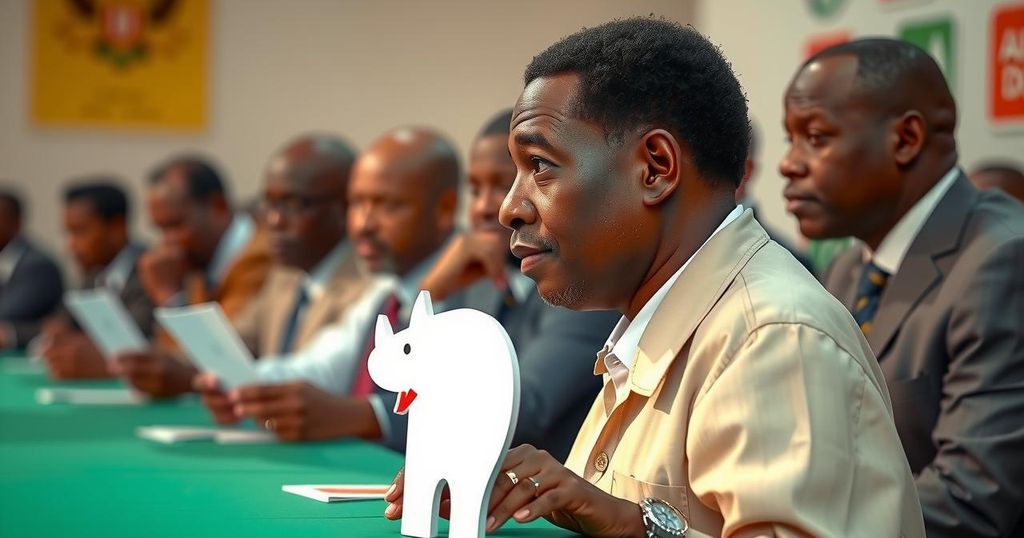Chad’s Controversial Parliamentary Election Begins Amid Opposition Boycott
Voting is underway in Chad for its first parliamentary election in over a decade, despite a boycott from opposition parties. The elections are touted by the government as a transition to democracy, yet allegations of fraud and pre-determined results loom large. Voter turnout has been low in the capital, raising questions about the legitimacy of the electoral process.
Chad has commenced its first parliamentary election in 13 years, amidst significant controversy and calls for boycott from opposition factions. Voters are eligible to elect representatives for a new parliament, provincial assemblies, and local councils in a nation where political unrest and economic hardship are prevalent. The ruling government heralds this election as a crucial step in transitioning away from military governance, while opposition leaders argue that the outcomes are predetermined. Voter turnout in the capital, N’Djamena, has been notably low as the majority of opposition parties refuse to participate.
President Mahamat Idriss Deby Itno, who assumed power following a military coup in 2021, urged citizens to participate in what he termed a “historic day”. Meanwhile, the opposition, led by Succes Masra of the Transformers party, denounces the legitimacy of the election, claiming that the results have already been prepared. As soldiers and nomads voted prior to the general election due to logistical constraints, the electoral agency reported high turnout rates among these groups.
Challenges, including the economic impact of climate change and security issues due to Boko Haram attacks, loom over these elections. Additionally, there are serious allegations from the opposition concerning electoral fraud, including reports of missing ballots. With monitoring in place by foreign observers, the election is considered a pivotal moment for Chad’s democratic aspirations, yet skepticism remains regarding its integrity and actual impact on governance and policy change.
Chad’s electoral landscape has been shaped by years of military rule and political strife. Following the death of long-time leader Idriss Deby in 2021, his son, Mahamat Idriss Deby Itno, assumed leadership through a military council. This election marks a pivotal attempt to restore a parliamentary system after over a decade of postponements, however, numerous opposition groups reject its legitimacy, seeing it as a continuation of autocratic governance. The country’s transition to democracy has been fraught with challenges, including economic difficulties, allegations of corruption, and armed conflicts, particularly in the northern regions. Understanding this backdrop is essential to comprehending the current electoral dynamics and the potential ramifications for Chad’s future.
In conclusion, Chad’s parliamentary elections signify a critical juncture in its political history, aiming to establish a semblance of democratic rule after an extended period of military governance. However, the strong opposition boycott, low voter turnout in major areas, and allegations of election rigging cast considerable doubt on the credibility of this electoral process. As the international community observes, the outcomes of these elections may influence Chad’s sociopolitical landscape and its aspirations for genuine democratic governance.
Original Source: www.aljazeera.com




Post Comment